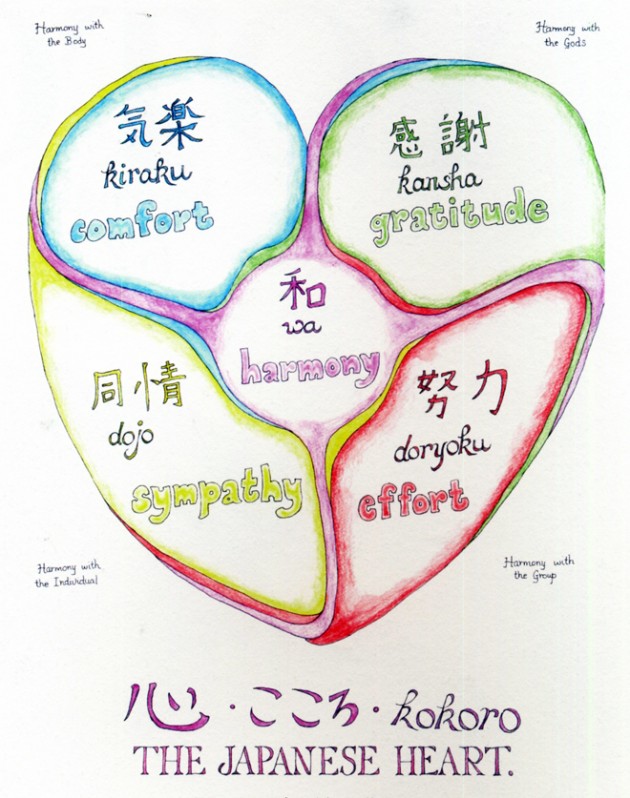
[T]he heart is a very private place, and one we hesitate to reveal to anyone outside our circle of intimates. This is especially true of the Japanese. Over the centuries of their tumultuous history, their civilization has come to include an effective system of defenses to protect what is essentially an extremely sensitive and vulnerable central constellation of emotions. In fact, these defenses work so well that in the global human family, the Japanese have a reputation for being rigidly self-controlled, unemotional, even cruel. My life among them has shown me a completely different side. Of course, since they are human, some feelings that begin as pure or positive are warped or exaggerated by insecurity, fear, or desire — but the basic components of their hearts, as I have experienced them, are these.

The core of kokoro (the heart) is the search for wa (peace or harmony); this search manifests itself in all areas of life. There is a strong urge toward harmony with nature and the gods that dwell therein, which takes the form of gratitude for life and all the myriad exquisiteness of art. To achieve harmony with one’s group, effort is necessary — to pull one’s own weight, to suppress individual desires, to tactfully ignore disruptions, to contribute to the smooth flow of group energy. But there is also the need for underlying sympathy, with oneself and with those close by, which softens and makes bearable the demands of a vertically organized, group-oriented society. The national trait of amae (dependence), which is often interpreted by Westerners as selfishness, can also be seen as an attempt by the sensitive heart to return to the warmth and security of childhood and mother’s love. Finally there is the deep appreciation of bodily comfort and pleasure, as seen in the refreshingly guilt-free enjoyment of food, alcohol, beauty, fellowship, the bath, and relaxation. This leads the heart back to the feeling of gratitude for life and for one’s surroundings. In this way the various emotions rotate around the central core, which is the search for harmony, and provide the emotional energy of the Japanese psyche.
Perhaps this sounds presumptuous, after all — and simplistic as well. But every individual experience of reality produces an individual ordering of reality. This is mine. Identifying the components of the Japanese heart has greatly helped me to understand my neighbors and friends, and to feel closer to them as human beings.
